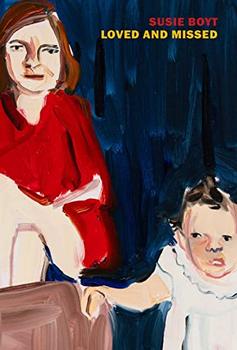Summary | Excerpt | Reviews | Beyond the Book | Readalikes | Genres & Themes | Author Bio

Sheila's boyfriend saw me come back into the church and began to rouse her gently and I handed him the coffee and he removed the lid, held the cup up to her mouth, blew on it for her and fed it to her in thin little sips, his other arm coiled round her back. He was careful with her, fielding her slumps and stumbling. I was glad she was with someone nurturing, even if he was more than twice her age.
'So.' I gave her my best invigorating smile– my voice had file paper in it, ring binders, hole punches, sticks of chalk. 'Shall I explain how it's all going to go? When he calls us up, the priest, you and me,' I pointed at her and then at myself, 'we'll just go over to the font together, over there,' I gestured again, 'and we'll say the things the priest tells us. We just repeat the words after him. that sound all right?'
'Yes, miss,' she said.
'Call me Ruth. Go on. Please. We're not at school any more.'
She looked doubtful.
I half wondered if we could ask Father Pat to be godfather.
We got through it somehow. the best moment was when me, Ben, Sheila and Eleanor all rejected the glamour of evil. Lily looked at me aghast. Not on my account, she seemed to say. I caught Father Pat's eye and he caught mine and his pupils were pitched between humour and despair. 'You know we'd better laugh or we might cry because I don't know what to do,' his eyes whispered– or even what the hell to do or possibly what the fuck– and it was so intimate suddenly it was almost for a moment as though none of us was wearing any clothes – maybe I have underestimated religion – in any case I had to look away. Did Lily actually roll her eyes then? Could a baby do that? She was so comical. It was a brilliant idea to be a baby and laugh a great deal more than you cried.
It was time for me to do the reading. I unhooked Sheila's arm from mine, helped her back into her seat so she could rest. I always got the girls at school to learn a poem on Friday afternoons. It will be a lovely wallpaper for your life, I told them, especially at in-between moments when you can't get off to sleep, when you're waiting for the bus or nervous about an important meeting at work, when you're feeding your babies you can just run through beautiful things in your mind to lift yourself, when you're about to take your curtain call at Stratford-upon-Avon. Often I would learn one with them too. I had 'Piping down the Valleys Wild', Blake's poem of innocence, up my sleeve. 'at was childish, joyous, baptismal. Good. I stood, confidently, about to begin, and then suddenly I was unsure that its glee and cheer were really what was called for, even though it contained a few tears. I needed something more stringent, a manifesto.
I remembered a song from my mother's funeral. It was one of the final things. I almost didn't make it to the end. Eleanor was a couple of months old then and she and I were living in two rooms that smelled strongly of laundry that the woman downstairs boiled in a huge saucepan on her stove, bleach and scorch round the clock, so that the walls and the staircase were permanently sweating. I was a liquid mass of grief myself: milk, tears, exhaustion. I used to sit feeding Eleanor remembering my mother's sleeping sounds, her steady breathing and her lovely face– femininity that was its own reward – birdsong welling up from the street and bright chips of children's playing noises.
I was thirty but I didn't know anything. Eleanor's father put in an appearance perhaps an hour a week, keeping his coat on, eyes trained on the door. Sometimes he wouldn't sit down.
It was a hymn I chose then, a hymn about kindness. My mother hadn't had an easy life and I wanted to acknowledge it; correct it, offer compensation. I stood at the lectern again now, for Lily, glad of its support and the way it shielded me and I began to sing. the sound was thin at first, like a shy choirboy, but then I came into my own a little bit. the priest stood to my right, mouthing the words alongside me like a holy stage mother. Lily wriggled in her mother's arms. I felt my mother with me too, at my side, on my side. It was to the tune of 'the Londonderry Air' or 'Danny Boy'. I didn't know who the 'I' character in the song was, whether it was me, or my mother, or God or Eleanor or Lily or... or... Was I singing an apology to the human race? Some days the way you parodied yourself could be quite breathtaking. I smiled.
I would be true, for there are those who trust me;
Excerpted from Loved and Missed by Susie Boyt. Copyright © 2023 by Susie Boyt. Excerpted by permission of New York Review Books. All rights reserved. No part of this excerpt may be reproduced or reprinted without permission in writing from the publisher.
The less we know, the longer our explanations.
Click Here to find out who said this, as well as discovering other famous literary quotes!
Your guide toexceptional books
BookBrowse seeks out and recommends the best in contemporary fiction and nonfiction—books that not only engage and entertain but also deepen our understanding of ourselves and the world around us.